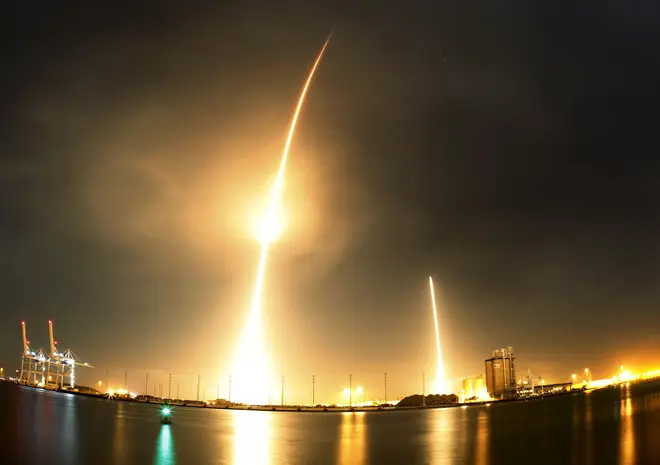
Henry Riley 7pm - 10pm
26 January 2022, 13:38

A SpaceX rocket is on collision course with the moon after hurtling through space for seven years.
The booster launched in Florida in February 2015 as part of a mission to send space weather satellite on a long-range mission.
The spent Falcon 9 rocket stage is on course to hit the Moon in March.
The rocket’s second stage was high enough that it did not have enough fuel to return to Earth's atmosphere.
It also lacked the energy to escape the gravity of the Earth-Moon system, so it has been following a chaotic orbit since February 2015 and experts have now revealed it is on a collision course with the moon.
Space object tracker Bill Gray has said he believes the four-tonne object will strike the far side of the moon, near its equator, on March 4.
It is expected to impact the Moon at a velocity of about 2.58 km/s - over 3,500 mph.
The details are unclear and there will be slight alterations to its orbit. Mr Gray wrote: “These unpredictable effects are very small.” He said the precise time and location of the impact could change.
Read more: 'Severe' UK sanctions 'ready to go' as 100,000 Russian troops line Ukraine border
Read more: Killer cyclists face prosecution under historic new law welcomed by campaigners
It is thought it will be the first time a piece of space junk has ever struck the moon.
Normally in rocket launches, the craft’s upper stage is sent into orbit, keeping it away from the Earth and Moon
For spacecraft intended to orbit the Earth, the best practice is to keep enough fuel in a rocket's upper stage to return it to Earth's atmosphere, where it will burn up.
In December, China accused Elon Musk of putting its Space Station in danger.
A document submitted to the UN Space Agency said the station had to take evasive action to avoid hitting two of his SpaceX satellites.
It's prompted online criticism of the billionaire among a population that buys tens of thousands of his Tesla cars every month.